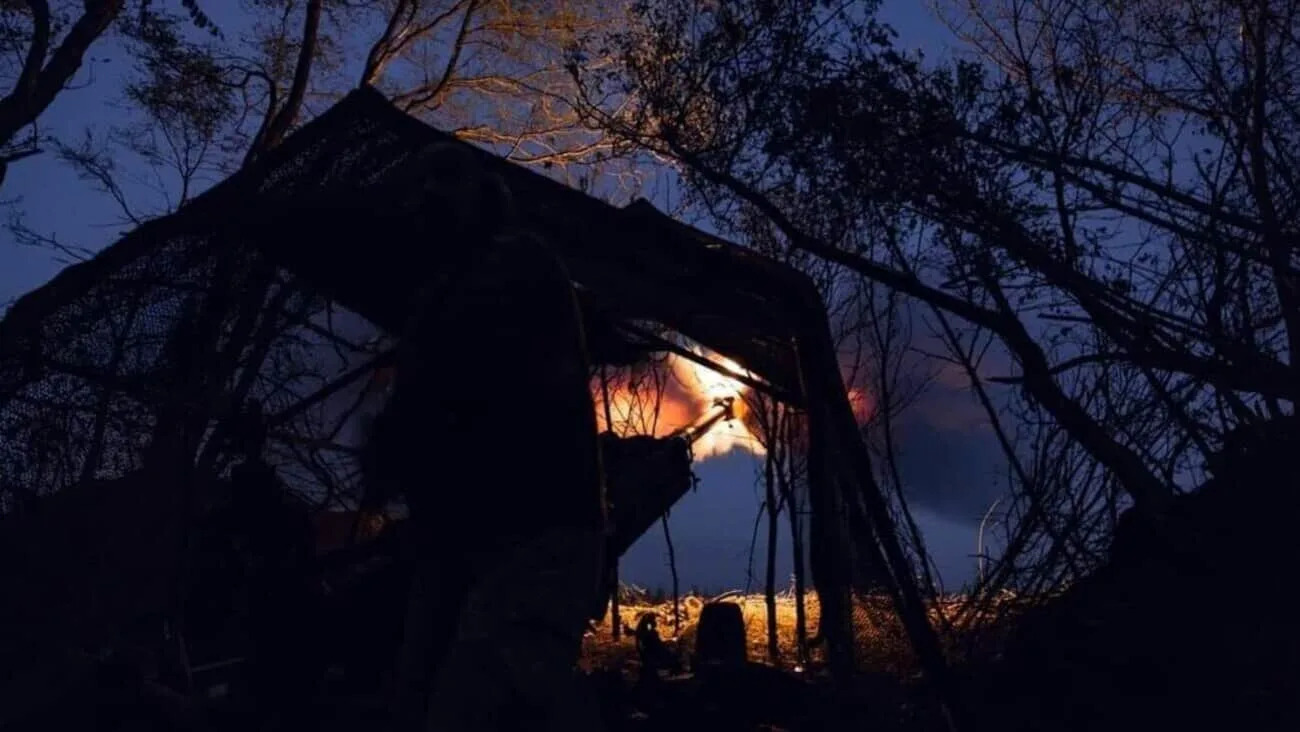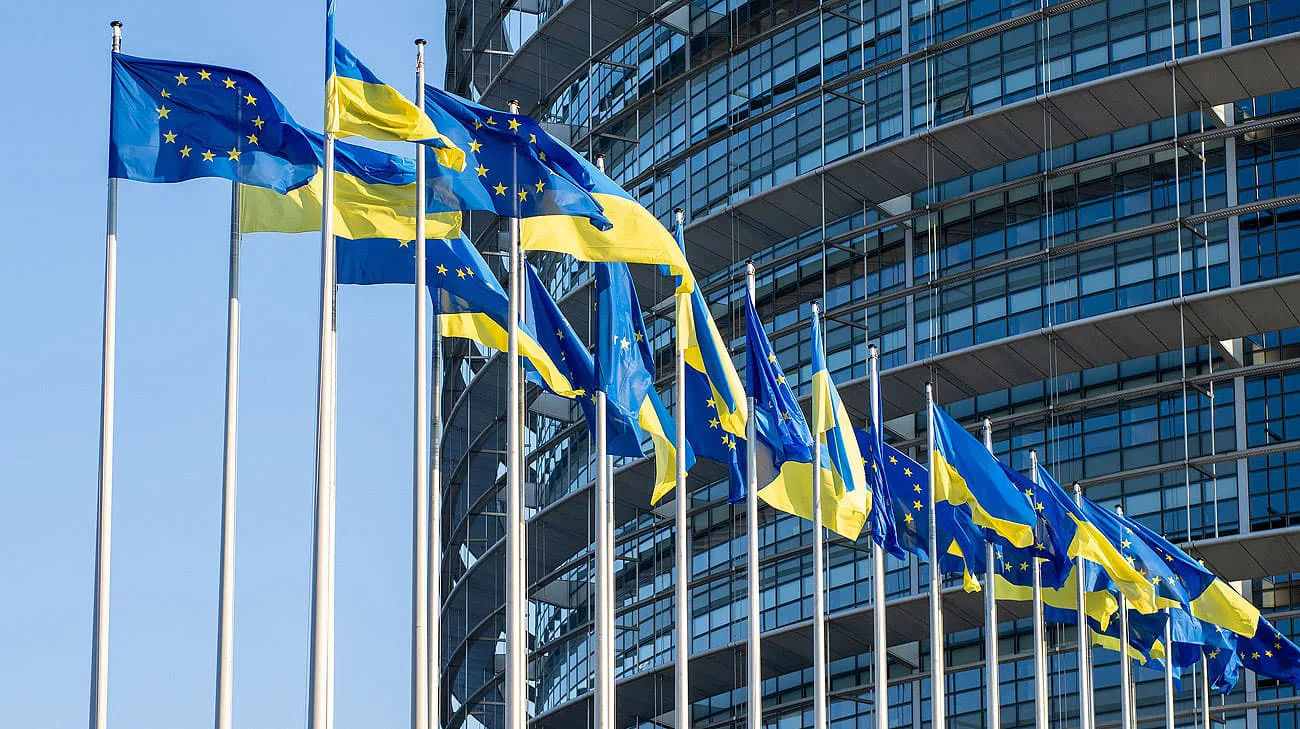Insights from Politico, Semafor, The Atlantic, and the Financial Times
Top Western officials have in recent weeks urged continued support for Ukraine, as its war against Russia nears the two-year mark. William Burns, director of the U.S. Central Intelligence Agency, wrote in Foreign Affairs Tuesday that if Washington fails to support Ukraine, it “would be an own goal of historic proportions.”
Several European leaders, including German Chancellor Olaf Scholz, Danish Prime Minister Mette Frederiksen, and Mark Rutte, prime minister of the Netherlands, co-authored a letter in the Financial Times calling for long-term support for Ukraine in the form of military supplies. And NATO chief Jens Stoltenberg is lobbying conservative lawmakers in Washington, D.C., this week to approve Ukraine aid.
Public support for the war has waned, and some governments have questioned the continued need to fund Kyiv’s war efforts. There’s also speculation that Ukrainian President Volodymyr Zelenskyy is considering replacing his top general following a largely unsuccessful counteroffensive push last spring, but his office denied the rumors.
Western powers with ‘Ukraine fatigue’ can afford to send aid
Ukraine will only be able to “endure if it receives the wholehearted and timely support of western powers,” the Financial Times chief economics commentator Martin Wolf wrote this week. Around half of Ukraine’s budget is earmarked for defense spending — meaning the nation is reliant on outside funds to keep it afloat. Much of the West is experiencing “Ukraine fatigue,” Wolf noted, but the threat posed by Russia hasn’t dissipated. “The sums to be agreed this year amount to less than 0.25 per cent of the combined GDP of the EU, UK and US,” he wrote. “The argument that this is unaffordable is ridiculous.”
US failure to fund Ukraine would send the wrong signals to allies and adversaries
If U.S. lawmakers pull their support for the Ukraine aid package, Washington will be seen as an ally who is “unreliable,” “unserious,” and “silly”, journalist Anne Applebaum recently wrote in The Atlantic. The U.S. has military equipment available to send, she argued, unlike European allies who have funded Kyiv, but do not have the same arms production capabilities. If Congress fails to agree on aid, it would signal to Europe that Washington cannot be trusted, Applebaum wrote, and both Russia and China, who are likely watching the debate unfold, would see it as reinforcement for “their frequently stated belief that the U.S. is a degenerate, dying power.”
Washington, other allies pivot to supporting defensive measures in Ukraine
U.S. and European officials have shifted their goals from achieving a “total” victory over Russia to focusing on defensive measures, with one U.S. official telling Politico, that the “only way this war ends ultimately is through negotiation.” He added that Ukraine wasn’t being discouraged from future offensive pushes, saying, “We want them to be in a stronger position to hold their territory.”
U.S. President Joe Biden’s rhetoric about the war has also shifted in recent months, Politico noted. While he previously said that Washington would support Ukraine for “as long as it takes,” he now pledges to continue for “as long as we can.” That, analysts contend, suggests that the war’s future includes a partial victory for Kyiv, and a truce or ceasefire deal with Moscow.
"A matter of life and death": Five EU leaders call for increased support for Ukraine
The General Staff of the Armed Forces of Ukraine.
German Chancellor Olaf Scholz, Danish PM Mette Frederiksen, Czech Republic PM Petr Fiala, Estonian PM Kaja Kallas and the Netherlands' PM Mark Rutte have written a joint letter calling for collective efforts to provide long-term support to Ukraine.
Source: A letter published by the Financial Times, as reported by European Pravda.
"We call on friends and partners of Ukraine to recommit to sustainable long-term military support for Ukraine as a joint European responsibility. This decision must be taken by each and every country. Only then will Ukraine be able to succeed in its defence against Russian aggression," the officials said in their statement.
The leaders of the five countries insist that the EU and its member states must renew their efforts and increase military support. As they said, the burden is so great that all states must do everything possible to support Ukraine – it must remain a collective effort.
"At the beginning of last year, the EU committed itself to an ambitious goal of supplying Ukraine with 1mn artillery rounds before the end of March 2024. The hard truth: we have fallen short of this goal," the letter reads.
In their address, the leaders stressed the need to "immediately" provide Kyiv with ammunition and weapons systems, including howitzers, tanks, unmanned aerial vehicles and air defence systems, as new orders placed today will not reach the battlefield until next year.
To this end, they insist on finding ways to speed up the delivery of the promised artillery shells to Ukraine using existing stockpiles or jointly procuring ammunition through European defence companies, which requires expanding industrial capacity through framework procurement contracts and sustained investment by EU member states.
"Partner countries could play an important role as well and are invited to join in our collective effort... Our ability to continue to support and sustain Ukraine’s defence, both during the winter and in the longer term, is decisive. In fact, it is a matter of our common European security, and for the brave women and men of the Ukrainian armed forces a question of life and death," the letter reads.
The leaders of the five countries noted that Russia is waiting for no one, so it is necessary to act now.
"If Ukraine loses, the long-term consequences and costs will be much higher for all of us. We Europeans have a special responsibility. Therefore, we must act. Europe’s future depends on it," they urged.
Background:
-
Earlier, Olaf Scholz called on European countries to increase arms supplies to Ukraine, fearing that US aid could stop.
-
Prior to that, it was reported that the German chancellor wants to use the EU summit on 1 February to urge partners to send more weapons to Ukraine.
-
Ukraine’s Foreign Minister Dmytro Kuleba repeated that he was confident that the US Congress would approve supplemental funding for Ukraine despite the differences between the two parties on the issue of migration.
EU leaders to pledge to continue military support for Ukraine on 2 February
EU leaders will reaffirm their commitment to providing "timely, predictable and sustainable military support" to Ukraine in the future at the 2 February summit.
Quote from the draft conclusions of the meeting: "The European Council also reiterates the urgent need to accelerate the delivery of ammunition and missiles."
Details: It is reported that the summit's draft conclusions leave open the question of whether EU leaders will also promise to allocate another €5 billion to the European Peace Fund to help Ukraine, which is used to finance the supply of weapons to Kyiv.
Reuters, which reviewed the draft conclusions, notes that the idea of allocating an additional €5 billion is included in the draft text in square brackets − this indicates that this issue is still being discussed.
The main topic of the Brussels summit is an attempt to reach an agreement on a package of four-year financial assistance to Ukraine in the amount of €50 billion, which Hungary blocked at the previous summit in December.
Background:
-
Earlier, Josep Borrell, High Representative of the EU for Foreign Affairs and Security Policy, said that Ukrainians don’t have to worry about support from the European Union weakening.
-
German Chancellor Olaf Scholz hopes to use the EU summit on 1 February to call on member states to send more weapons to Ukraine.
-
The European Commission believes that the EU will be able to produce a million rounds of ammunition for Ukraine until the spring of this year despite the process slowing down.





